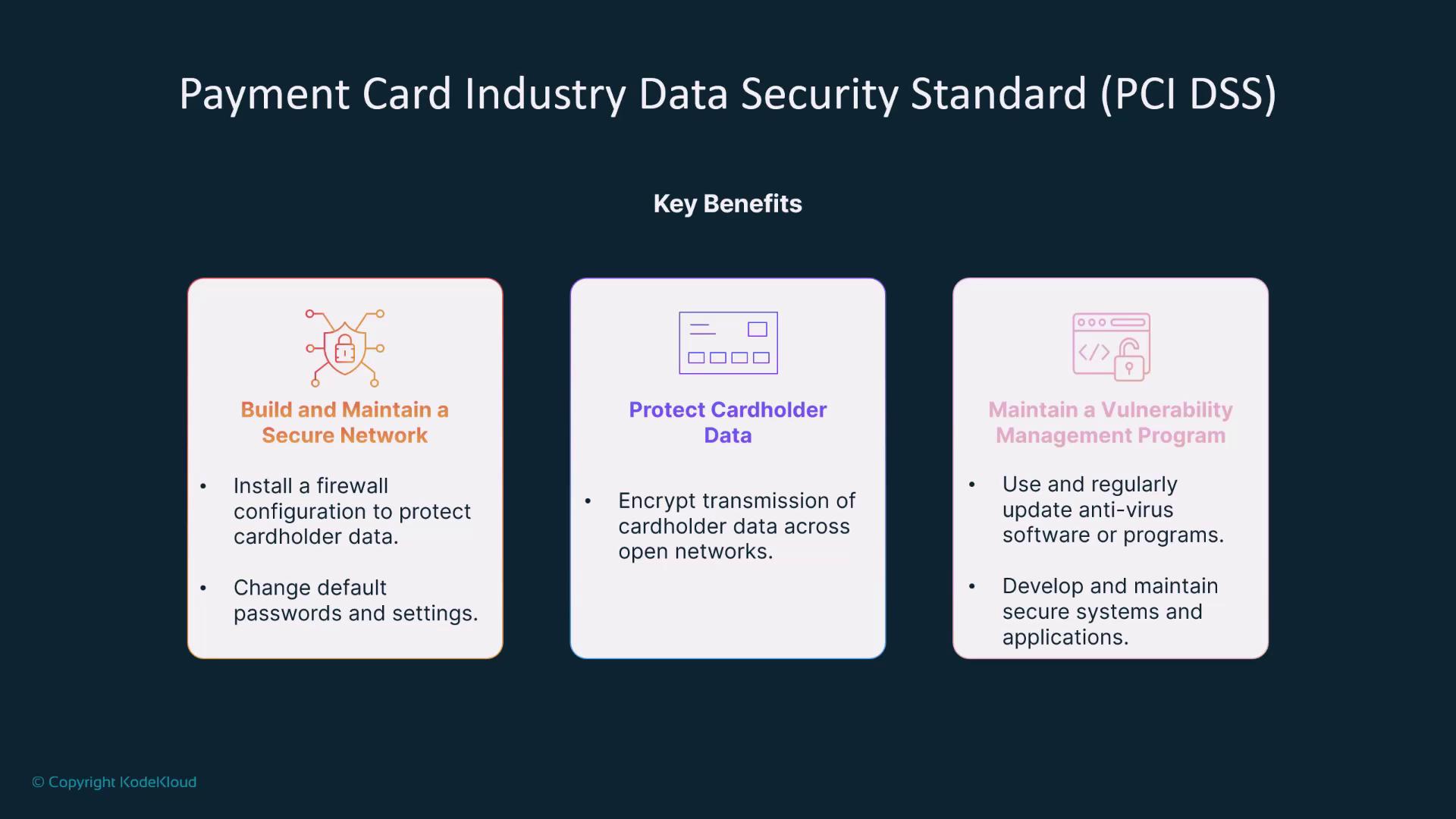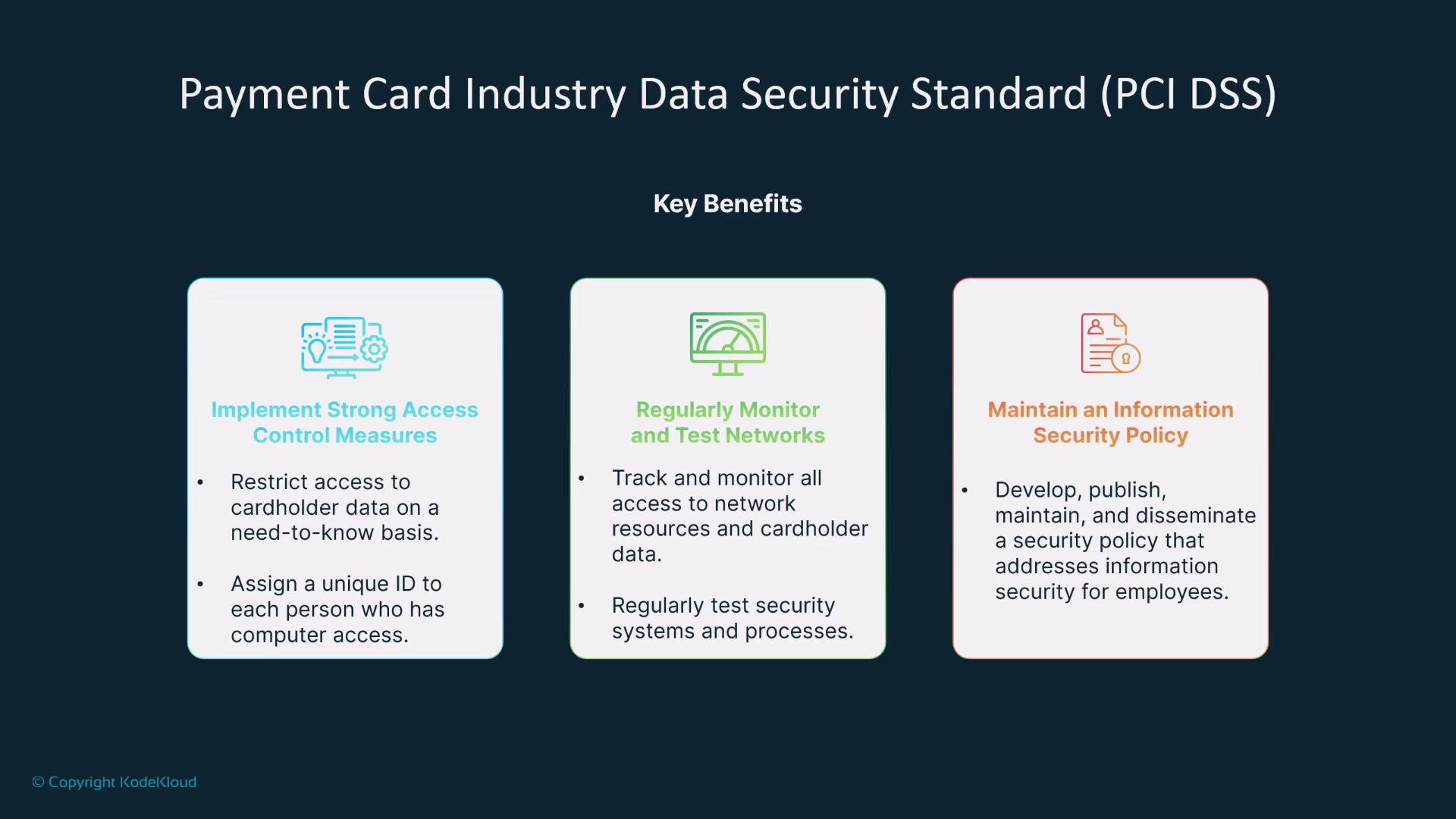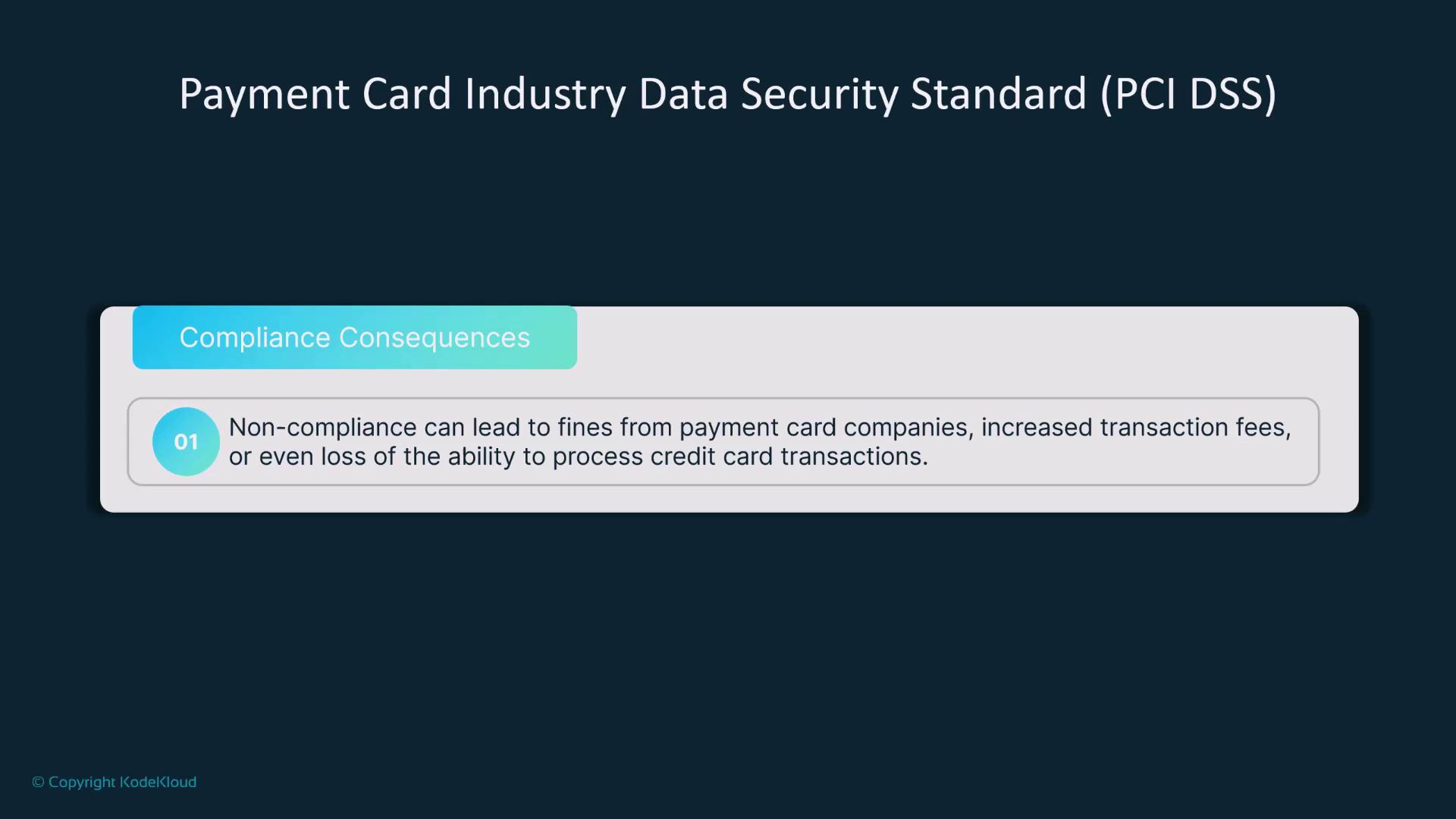Fundamentals of MLOps
Data Security and Governance
PCI Compliance
Welcome to this lesson on PCI DSS (Payment Card Industry Data Security Standards). Introduced in 2004, PCI DSS is a critical compliance standard designed to ensure that any organization accepting, processing, storing, or transmitting credit card information maintains a secure environment. This article provides an in-depth look at PCI compliance, outlining its importance, key benefits, potential consequences of non-compliance, and relevance for MLOps engineers.
Importance of PCI Compliance
Imagine making an online purchase. Every time you use your credit card, PCI compliance plays a crucial role in protecting your transaction from cyber threats. By enforcing robust security measures and protocols, this standard minimizes vulnerabilities in payment systems and defends against potential financial fraud.
Key Benefits of PCI Compliance
PCI compliance enhances security by focusing on five main areas:
1. Building and Maintaining a Secure Network
A secure network is the foundation of PCI compliance. This includes implementing firewalls and changing default passwords to safeguard cardholder data. For instance, a retailer might use firewalls to block unauthorized access, while payment processors encrypt sensitive credit card information during transactions.
2. Maintaining a Vulnerability Management Program
Effective vulnerability management involves the deployment of antivirus software and regularly updating systems to address emerging threats. For example, an e-commerce platform might consistently update its security software to ensure that evolving risks are mitigated.

3. Implementing Strong Access Controls
Robust access control measures ensure that only authorized personnel can access cardholder data, thereby promoting accountability. Assigning unique IDs to each employee and routinely monitoring access attempts to servers are common practices that help secure systems.
4. Regularly Monitoring and Testing Networks
Continuous monitoring and testing of networks are critical for early detection of security breaches. This proactive approach enables organizations to promptly address any issues, thereby enhancing overall security.

5. Maintaining an Information Security Policy
A clear and comprehensive information security policy ensures that all employees understand and adhere to security protocols. This documented approach reinforces the organization’s commitment to safeguarding customer data.
Note
It is essential for businesses to integrate these security measures to not only comply with PCI DSS but also to build customer trust.
Consequences of Non-Compliance
Non-compliance with PCI standards can result in significant consequences. Organizations may face hefty fines from payment card providers, increased transaction fees, or even the loss of credit card processing privileges. For example, a small business experiencing a data breach might not only incur financial penalties but also suffer severe damage to its reputation and customer trust.

Warning
Remember: Ignoring PCI compliance is not an option. Ensuring adherence to these standards is vital for the protection of both business assets and customer information.
Relevance for MLOps Engineers
MLOps engineers, especially those involved in developing and deploying machine learning models for financial fraud detection, must prioritize PCI compliance. When training ML models with financial data, it is imperative to ensure that the dataset does not contain any information that violates PCI standards. By complying with PCI DSS, engineers help secure sensitive financial data and improve the reliability and effectiveness of fraud detection models.
Thank you for reading this guide on PCI compliance. We look forward to sharing more insights in our upcoming lessons.
For further reading, visit:
Watch Video
Watch video content